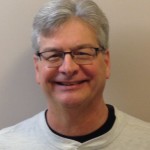 Baptist historian Bill Leonard, in his brilliantly insightful way, recently called attention to the multiple problems in identifying as an evangelical today. What does it mean to be an evangelical? Leonard shared how a “religiously unaffiliated” friend asked him, “Aren’t you evangelicals just the Republican party at prayer?” Leonard points out that with over 75 percent of self-identified evangelicals deciding to vote for Trump the term has been emptied of its historical significance. Dr. Leonard is content to simply be known as a Christian and a Baptist. But what do these terms mean in today’s topsy-turvy religious world?
Baptist historian Bill Leonard, in his brilliantly insightful way, recently called attention to the multiple problems in identifying as an evangelical today. What does it mean to be an evangelical? Leonard shared how a “religiously unaffiliated” friend asked him, “Aren’t you evangelicals just the Republican party at prayer?” Leonard points out that with over 75 percent of self-identified evangelicals deciding to vote for Trump the term has been emptied of its historical significance. Dr. Leonard is content to simply be known as a Christian and a Baptist. But what do these terms mean in today’s topsy-turvy religious world?
I abandoned the term evangelical a number of years back when I could no longer claim to believe in biblical inerrancy. The schools I graduated from had strong ties to the Evangelical Theological Society where biblical inerrancy is a defining attribute. When I could no longer profess to be an inerrantist I felt compelled to forsake the label of evangelical. My rejection of other fundamental evangelical doctrines like substitutionary atonement and the virgin birth came later.
Being a Baptist pastor in a Baptist church doesn’t allow me any options here. I grow weary, however, of having to explain to people what kind of Baptist I am. When I self-identify as a progressive Baptist minister most folks look at me like I have some rare disease. Isn’t progressive Baptist an oxymoron?
In my neck of the woods we have a few Primitive Baptists, some Free-Will Baptists and a fair number of Independent Missionary Baptists, but there is a Southern Baptist church on just about every corner. When I started writing about progressive Christian values and perspectives in our local newspaper people would say, “You are no Baptist.” Other Baptist leaders in our city wrote letters to the editor charging that I was no Baptist. In fact, many of them contended that I was no Christian either, which brings me to the final term Leonard employed in his excellent piece.
What does it mean to be a Christian today? For many it means believing some very clear (in their way of thinking) propositional statements and confessions about Jesus, God and the Bible. In more recent times, with the marriage of evangelical Christians to the GOP, for some it means being against certain progressive social issues like marriage equality for the LGBTQ community. And with the rise of Christian civil religion, some people think that being a good Christian means being a loyal patriotic American.
These three words — Christian, Baptist and evangelical — have such diverse meanings in contemporary society they hardly mean anything at all.
So I would just rather be known as a would-be Jesus follower. The reason I employ the phrase “would-be” is because I have spent enough time in the Gospels to know that Jesus embodied and taught a radical way of life centered in the kingdom of God, which I frequently fail to imitate. I readily acknowledge that Jesus utilized a great deal of hyperbole and shocking imagery to teach wisdom and impress truth on his disciples, as, for example, when he says things like, “If your hand causes you to sin, cut it off. Or if you eye causes offense, then pluck it out.” Anyone with half a brain knows not to take Jesus literally here. Nevertheless, there are many teachings of Jesus I simply have great difficulty living up to.
If one is honest about what Jesus says about loving others (including one’s enemies) and about sharing one’s possessions with others one has to admit that Jesus wasn’t very practical at all. Indeed, he was over-the-top radical. He was far more radical than I like or even aspire toward at this stage in my spiritual journey. I don’t care to admit that I’m not anywhere close to being as loving as Jesus, nor am I detached as Jesus was from other things and obligations. I do not reflect his simplicity of life, nor his exclusive devotion to God’s restorative justice and will on earth.
Like so many of my friends, I’m more of a “moderate,” certainly not close to being as radical as Jesus. I’m a would-be disciple who struggles with the hard sayings of a radical prophet, mystic, teacher, healer and reformer, who I call my Lord.
Is he my Lord? Sometimes I’m not sure.
